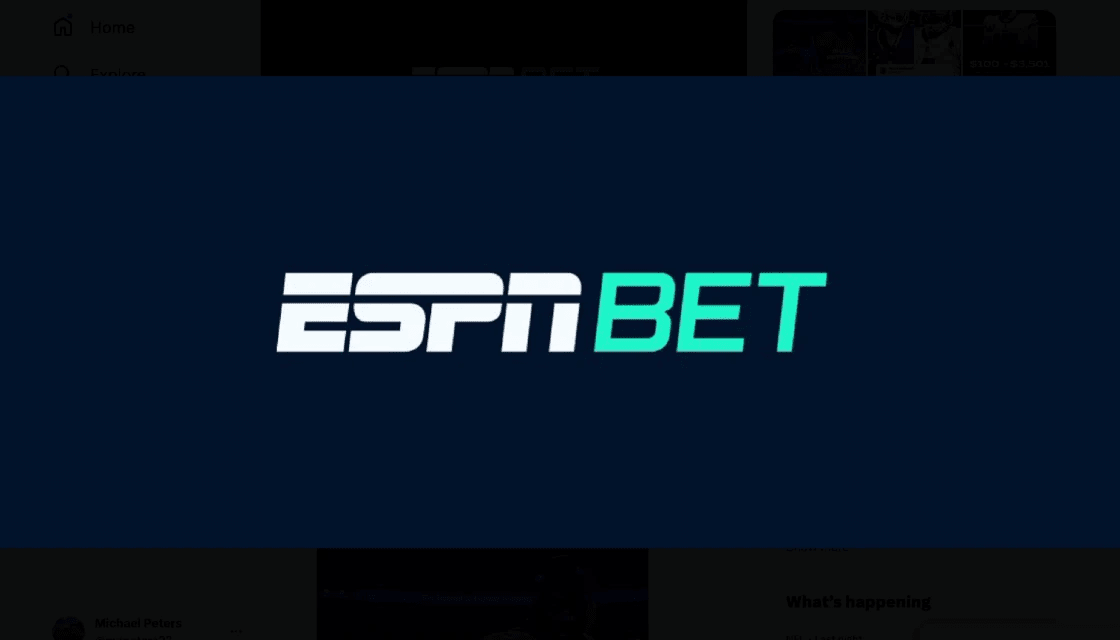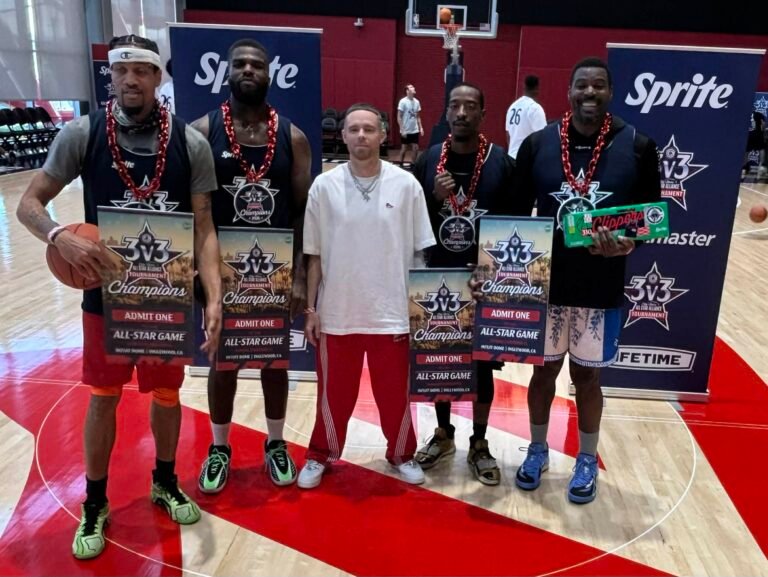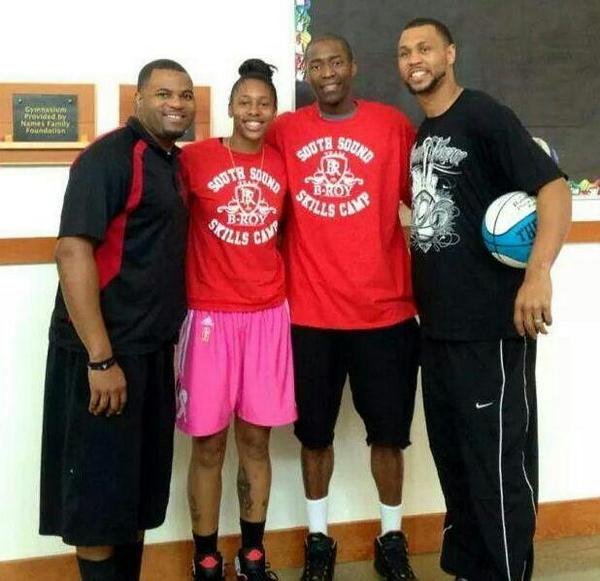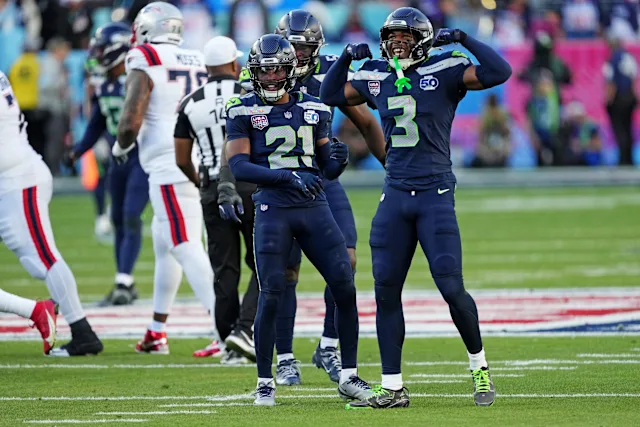
ESPN Betting: the house pulls the plug as federal scrutiny reshapes the game. Courtesy of ESPNBET
Two Years of Glory—Then the House Folded
Only two years after ESPN waltzed into the glittering world of sports betting, the media titan has abruptly called it quits—pulling every chip off the table. The announcement hit like a bad beat in Vegas: “Effective immediately, all ESPN-branded betting operations are suspended.”
Translation? The world’s biggest sports broadcaster just ghosted the gambling industry—and not even a courtesy text was sent.
The reason behind this high-stakes breakup? Federal heat. The FBI isn’t exactly known for placing friendly wagers, and lately, they’ve been very interested in the line between sports entertainment and organized crime.
The House Always Wins—Until It Doesn’t
For a fleeting moment, ESPN Betting looked like the future of fan engagement—a perfect marriage between adrenaline and analytics. Viewers weren’t just cheering for teams anymore; they were cheering for their wallets.
ESPN cashed in big time. Betting ads, interactive odds, and live “prop pick” features made game nights feel like high-end casino experiences. But when your brand becomes the dealer, the stakes change fast.
“When the FBI starts watching your halftime show, it’s time to rethink your business model.” — Sports Media Analyst (Anonymous)
From Courtside to Crime Scene
The collapse started courtside.
The FBI’s first target: a massive NBA illegal gambling ring, allegedly tied to Mafia crime families and coaching staff insiders. What began as whispers of “suspicious betting patterns” soon turned into full-blown indictments.
The scandal has been compared to the infamous 2007 Tim Donaghy referee scandal—only this time, the web was much bigger. FBI sources described the operation as “deeply entrenched” and “multi-layered,” with insiders using confidential team data to manipulate bets worth millions.
And if the basketball world thought it could dribble past the problem, they were wrong. The next hit came from a different arena altogether.
Enter the Octagon—of Investigation
With ESPN holding broadcast rights to the UFC, the Bureau’s attention pivoted faster than a fighter dodging a left hook.
Suddenly, the whispers got louder: last-minute bets, “guaranteed outcomes,” and odd performance dips during fights. Fans started connecting dots that ESPN probably wished they hadn’t.
While no official charges have been filed, the ongoing FBI probe into UFC betting integrity has made even the toughest fighters sweat harder than a fifth-round decision.
ESPN Throws in the Towel
Under pressure, ESPN’s next move was as sudden as it was symbolic.
In a statement that read like a mix between damage control and a breakup note, the network declared it would “remove all active and future betting operations under the ESPN brand until further notice.”
Critics called it cowardice. Supporters called it smart survival. The rest of us just grabbed popcorn.
Social media lit up instantly:
– “ESPN folded faster than my fantasy football season.”
– “The house always wins—unless the FBI’s the dealer.”
– “So… does this mean my parlay’s void or what?”
Follow the Money
To understand the fallout, follow the cash flow. Sports betting isn’t some casual side hustle—it’s a multi-trillion-dollar global empire.
When ESPN joined forces with major sportsbooks, it blurred the line between reporting the news and profiting from it. Analysts warned that editorial integrity and gambling revenue made for a toxic cocktail. Turns out, they were right.
Now, with federal investigators probing the dark alleys of sports wagering, ESPN’s “innovation” looks more like an expensive cautionary tale.
“They built a casino in the press box—and now they’re shocked there’s smoke.” — Former ESPN Producer
The Ripple Effect
This isn’t just about ESPN. It’s about the integrity of sports as a whole.
The NBA and UFC may be the first to face scrutiny, but insiders suggest the NFL, MLB, and even eSports could be next in line for audits. Wherever the profit potential outweighs oversight, the FBI tends to find breadcrumbs.
If game outcomes start looking a little too perfect—or conveniently unpredictable—fans may start asking whether their favorite teams are playing for glory or just covering the spread.
A Comedy of Consequences
Of course, not everyone’s mourning the end of ESPN Betting.
Late-night comedians are already in on the action:
– “ESPN leaving gambling is like a magician quitting magic after being caught palming the rabbit.”
– “It’s not you, it’s the FBI,” joked another.
And the memes—oh, the memes. Dana White edited into a poker card, LeBron holding a “BET CANCELLED” banner, and one viral masterpiece of an ESPN anchor ducking under the news desk while FBI agents burst through the doors.
It’s tragicomic perfection—sports drama meets sitcom timing.
What Happens Next
Behind the jokes lies a serious question: Can we still trust the games we watch?
Fans want authenticity. They want to believe the buzzer-beater was real, the knockout wasn’t planned, and the scoreboard isn’t tied to a betting algorithm.
If ESPN’s retreat sparks deeper reforms, maybe it’s the best thing that could’ve happened. But if the move is just a PR timeout while the heat cools off, then sports’ credibility problem is far from over.
The Final Bell
As the dust settles, ESPN’s grand betting experiment ends not with a cheer, but a sigh—and maybe a chuckle.
The network that once shouted “Bet responsibly!” has quietly left the table, bruised but breathing, hoping the next hand isn’t subpoenaed.
Meanwhile, the FBI continues to investigate, fans continue to speculate, and the next chapter in this scandal is already being written.
Because when it comes to the intersection of sports, money, and power, there’s one lesson ESPN just learned the hard way:
You can’t beat the house—especially when the house has a badge.
Author’s Note: “All Bets Are Off” is part of the Sports & Scandals investigative column, exploring the blurred lines between competition, corruption, and corporate chaos in the modern era of sports entertainment.
[[Anthony L. McKnight II]] also known as Krispy was Born in Rochester, NY attending the “School Of The Arts” Class of 2009. He graduated with a Regents Arts diploma while studying Creative Writing and other arts. He recently became the founder of the Los Angeles Lakers Fan Club on Clubhouse. His club has hosted several celebrity interviews inside the fan club, from names such as Robert Horry, Gloria James, Mark Medina, Jovan Buha. His favorite hobby is spending a day out in nature, favorite sports basketball & football.




